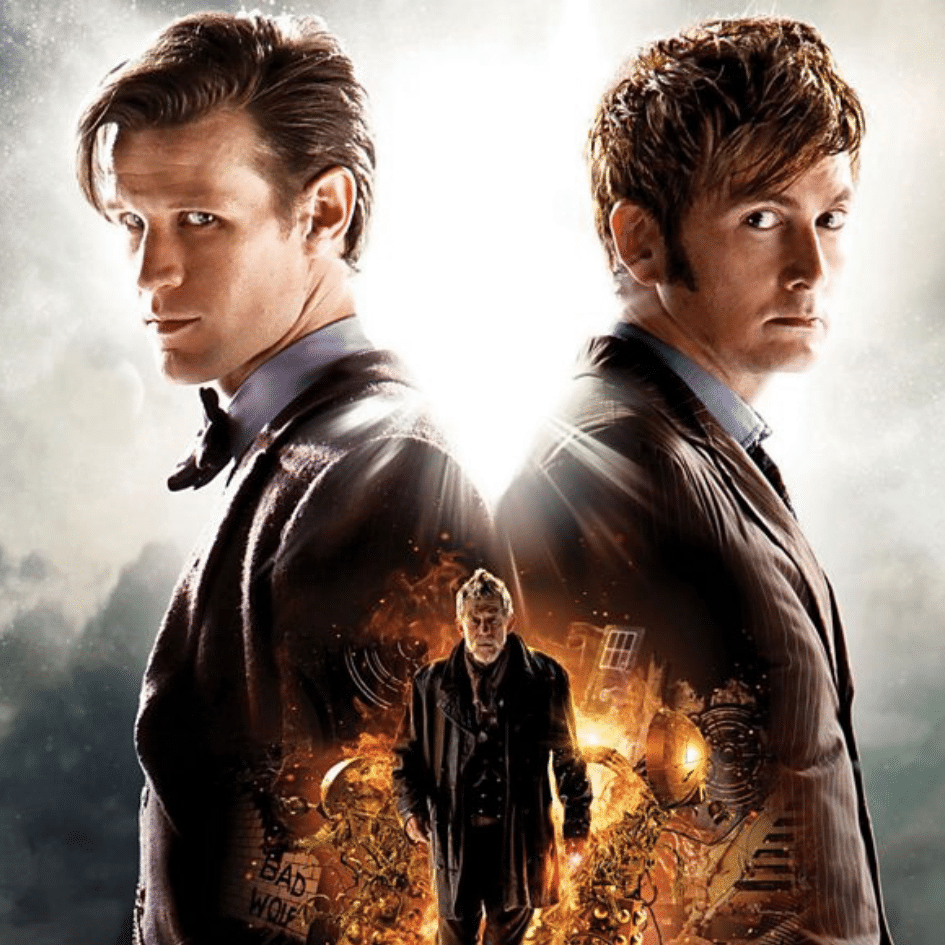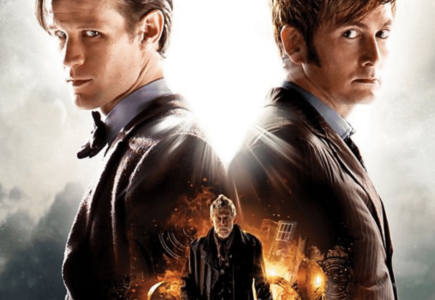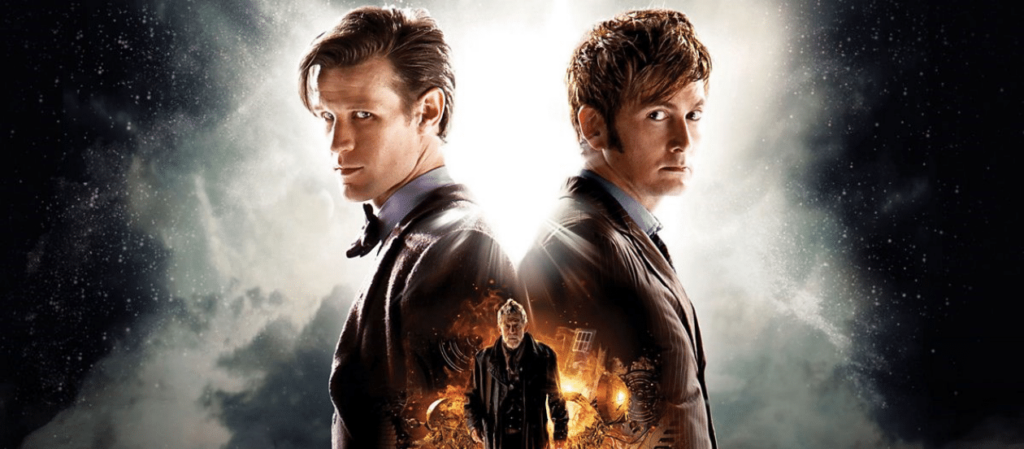
20-11-23 | After 26 unforgettable seasons the classic series of Doctor Who ended in 1989. Fans of the programme had set their sights on 1993. A 30th anniversary special could feasibly reignite interest in the Doctor’s travels. With the exception of a brief mini-reunion and a one hour documentary no such special materialised. And when the one-off 1996 television movie starring Paul McGann failed to captivate a new generation of television viewers, the return of Doctor Who seemed to be off the cards.
In hindsight, however, the 1990s were an unlikely golden age for Doctor Who. The so-called ‘Wilderness Years’ inspired entrepreneurial enthusiasts to fill the void left by the cancelled programme. It was an era of incredible creativity, which launched the careers of many young go-getters like Mark Gatiss. Scores of paperbacks flooded bookshops, Doctor Who celebrities starred in unofficial VHS spin-offs and fans produced high quality audio plays. These plays were so impressive, that the BBC granted this professionalised group of Whovians a license to produce proper Doctor Who on audio.
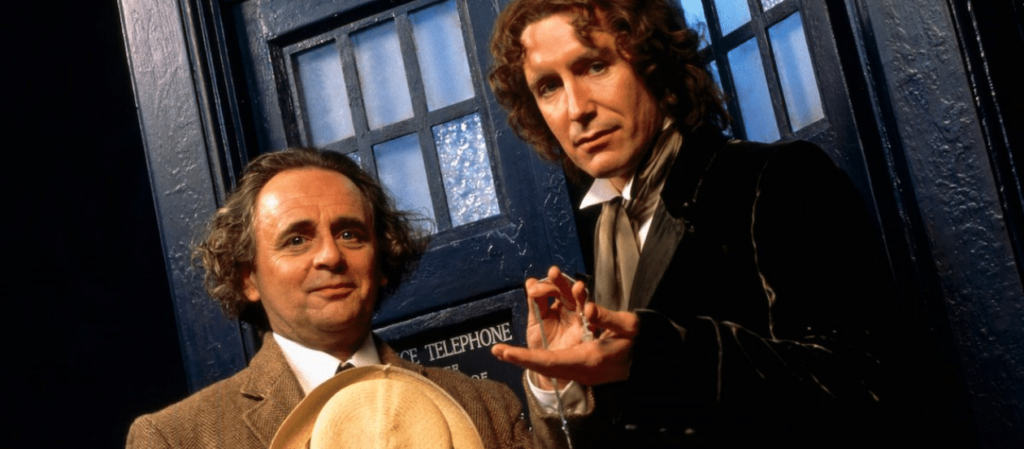
2003 – ZAGREUS
Paul McGann, who appeared as the Doctor briefly in the failed 1996 pilot, was once quoted as saying he had no intention of becoming the George Lazenby of Doctor Who. When Big Finish Productions, producers of the official audio adventures of Doctor Who, offered him the chance to star in his own series of CDs, he leapt at it. McGann’s fresh and modern series first reached appreciative listeners in 2001. And by the end of his second series in 2002, the audio adventures were gearing up to celebrate Doctor Who’s 40th anniversary.
With Jon Pertwee deceased and Tom Baker unwilling to join the fun, it fell upon Peter Davison, Colin Baker, Sylvester McCoy and the dashing Paul McGann to give the fans what they wanted. But producer Gary Russell had no intention at turning Zagreus into a traditional reunion special. The mammoth three CD box set instead plunged the Doctor into a fantasy world reminiscent of Alice’s Wonderland or Peter Pan’s Neverland. The former Doctor’s appeared as fantasy characters, rather than their classic roles.
An interesting approach which was received with mixed reactions. Paul McGann’s adventures were applauded for their bold twists and turns, but this one might have been a little too indulgent. Zagreus, incidentally, hardly made an impact with general audiences. Doctor Who was now well and truly a niche brand appealing to the select few. Doctor Who’s DVDs, books and audio dramas were bestsellers, but did not reach audience outside of the science fiction bubble. But all of this was to change. For Zagreus was not the biggest announcement of 2003 …
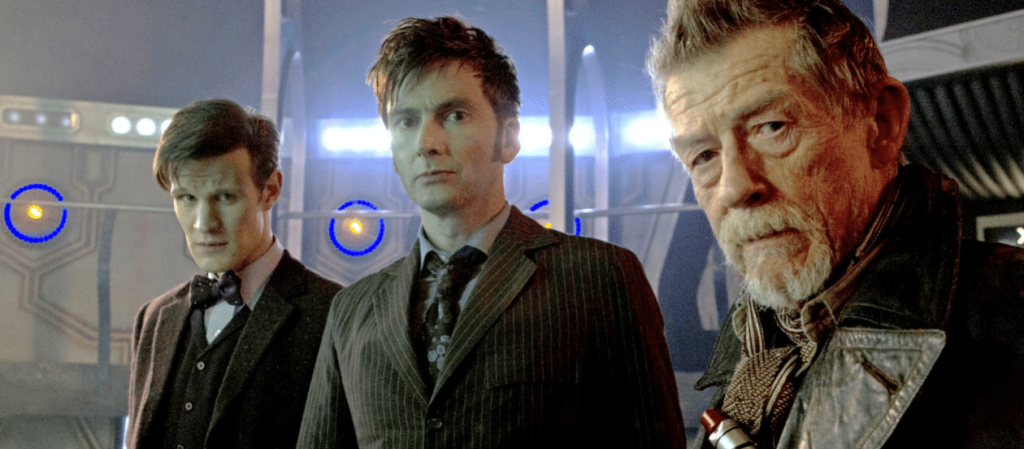
2013 – THE DAY OF THE DOCTOR
Near the end of the 40th anniversary it was announced that the highly regarded television writer Russell T Davies would be resurrecting Doctor Who in 2005. After fifteen years of false starts, fans were sceptical. Nevertheless, by 2005 the Doctor was back! Not as a cheap and cheerful potboiler but as one of the BBC’s flagship series, inspiring a whole generation of British viewers. In less than a decade Christopher Eccleston, David Tennant and Matt Smith turned Doctor Who into a blockbuster programme. Sci-fi for the masses, while retaining the DNA of classic Doctor Who.
The show had survived, despite the odds. More than that … it thrived! Doctor Who’s 50th anniversary, therefor, would be its biggest yet. In 2013 Steve Moffat produced The Day of the Doctor, which starred Matt Smith and David Tennant, plus John Hurt as a forgotten incarnation called the War Doctor. The special dealt with the last moments of the fabled Time War, which destroyed the Doctor’s home world. The Day of the Doctor was a ratings hit on TV and cinema screens, where for one night only fans could experience it in 3D.
But there was more to the 50th anniversary than The Day of the Doctor. A second special, entitled An Adventure in Space and Time, told the story of how the series was created way back in 1963. The endearing drama featured Harry Potter star David Bradley as William Hartnell. But the celebrations didn’t stop there! Peter Davison produced his own comedic special, of which he, Colin Baker and Sylvester McCoy were the stars. In The Five-ish Doctors, the former Doctors are on an ill-fated quest to be featured in the 50th anniversary special.
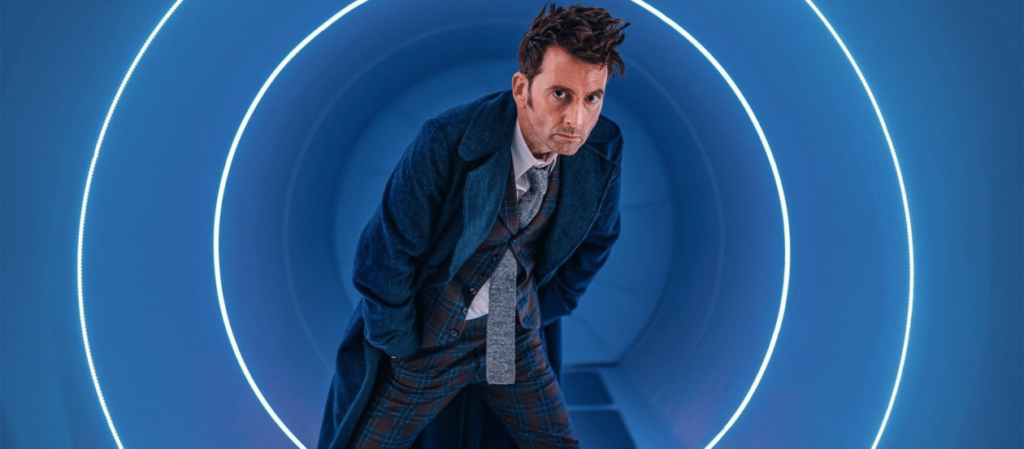
2023 – THE FOURTEENTH DOCTOR
It’ll be hard to top the 50th anniversary. 2013 confirmed that Doctor Who had become a British institution, in no danger of disappearing any time soon. Having peaked in 2013 did not do the Doctor much good, however. By the time Peter Capaldi appeared the general public started taking Doctor Who for granted and became actively disinterested by the time Jodie Whitaker took over. Chris Chibnall’s writing left a lot to be desired, meaning the show is in rocky waters once more.
And then Russell T Davies returned! The head writer will oversee the relaunch of Doctor Who in 2024, with Ncuti Gatwa taking on the iconic role. But not before the BBC have celebrated the 60th anniversary of Doctor Who in style. Rather than having either outgoing Whitaker or incoming Gatwa spearhead the 60th anniversary, Davies was inspired to recast David Tennant as the Doctor. It’s a bold move which risks overshadowing the past and future Doctors, but the stunt has put Doctor Who right back on top of the sci-fi food chain instantly.
The David Tennant specials – The Star Beast, Wild Blue Yonder and The Giggle – are the start of a new era of Doctor Who. Russell T Davies has teased that he is considering to create a Whoniverse in the style of the Marvel and Star Wars franchises. Should this happen, then the return of former Doctor Who stars will become commonplace. And I for one welcome it. Doctor Who is in no danger of being overexposed. Sixty years of books, comics and audio plays prove that Doctor Who has truly become a never-ending story. Happy birthday, Doctor Who! Wonderful chap, all of them.

